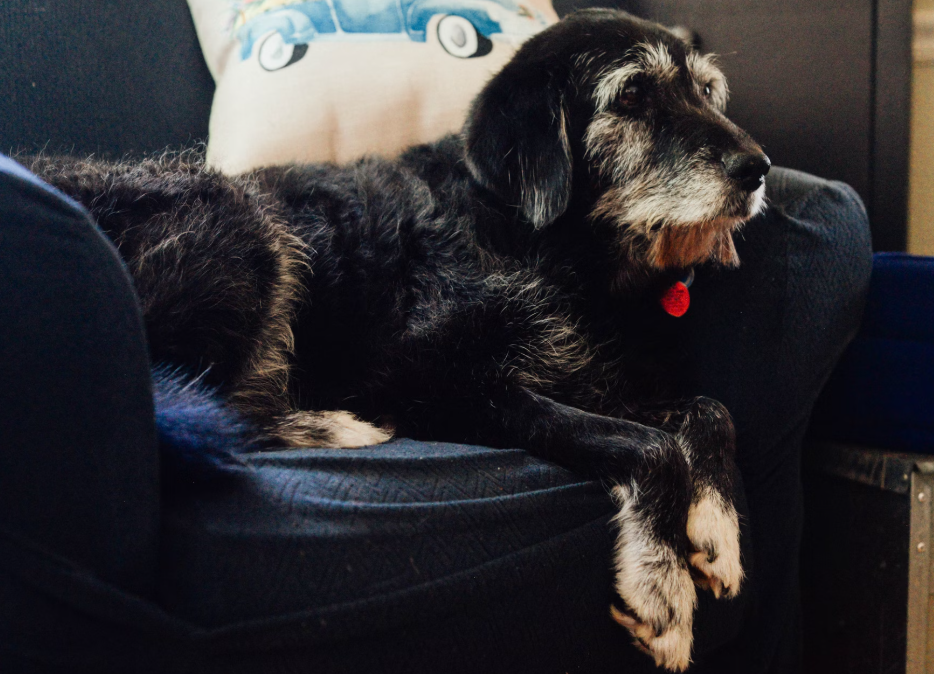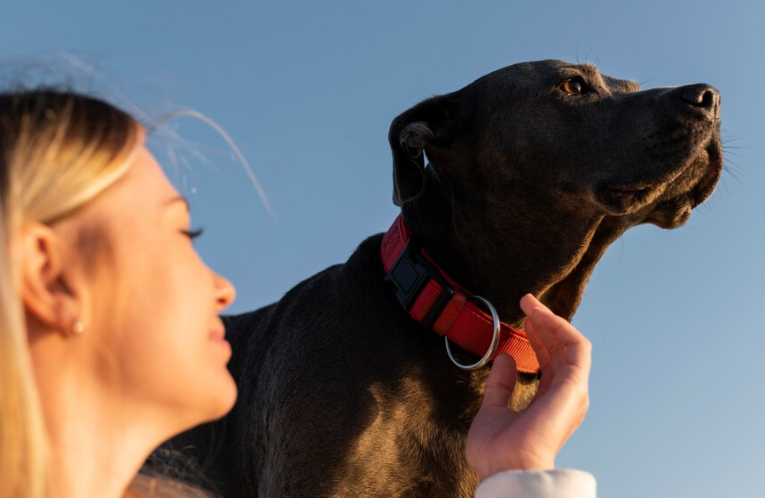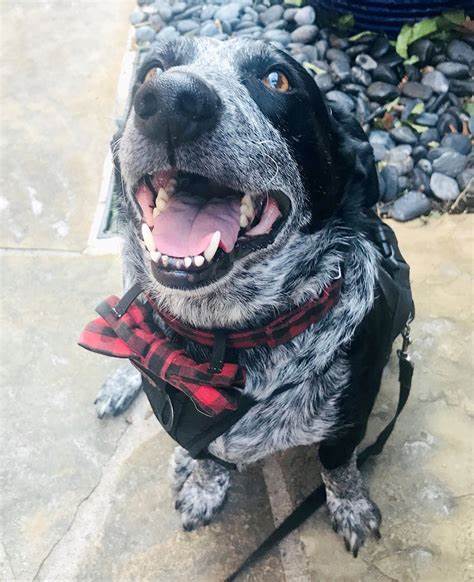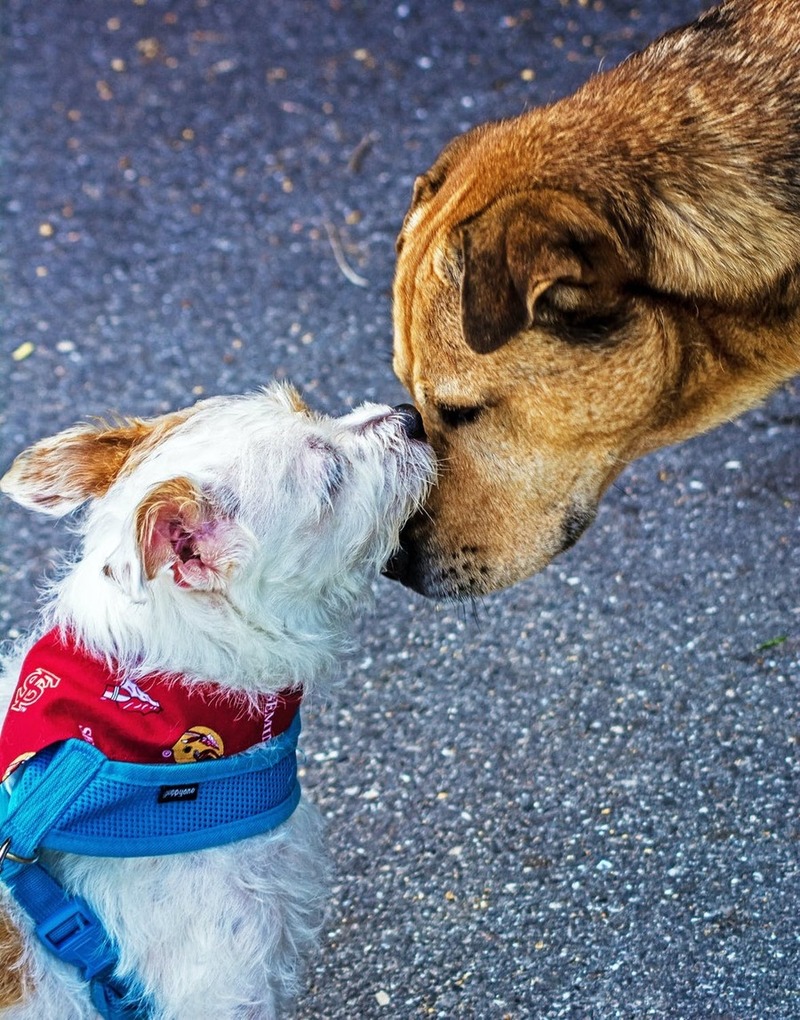
As dogs age, their
bodies undergo many changes, and one thing that many of us as pet
owners might notice is weight loss. While some fluctuation in weight
is normal as our furry companions get older, unexplained or
significant weight loss can often signal an underlying health issue.
Understanding why senior dogs lose weight and what we can do about it is key to keep them healthy, comfortable, and happy during their golden years.
Whether you have a beloved senior dog or simply want to stay informed about weight changes in older dogs, today’s article may be helpful!

Common Reasons For Weight Loss in Senior Dogs
Metabolic Changes
As dogs age, their metabolism naturally slows down, and this can affect how they process food and nutrients. A slower metabolism means that older dogs may not burn calories as efficiently as they once did.
For some dogs, this can naturally lead to weight gain, but for others, it can result in weight loss. For example, a slower metabolism can lead to weight loss if the dog experiences a reduced appetite, decreased nutrient absorption, or muscle wasting due to aging, even if they are eating the same amount of food.
Reduced physical activity can also contribute to this, as senior dogs may not move around as much, as they did as adults, and especially as puppies. This can cause a decrease in muscle mass and an overall weight loss.
However, it's important to remember that not all senior dogs will lose weight due to a slow metabolism, Some may maintain or even gain weight if they are overfed or less active.
Loss of Muscle Mass (Sarcopenia)
As dogs get older, they naturally start to lose muscle mass, which is known as sarcopenia, and is similar to what happens in humans. Over time, this muscle loss can make a dog look thinner, even if their body fat stays the same.
The less a dog moves, the more pronounced this becomes, which is why staying active is especially important to help maintain muscle. Beyond just appearance, losing muscle affects our paw friends’ strength and mobility, and makes it harder for them to stay active and keep weight on.
In some cases, less active dogs may actually need more calories to help preserve their muscle mass.
Dental Problems
Dental health is an often overlooked but significant factor in dogs’ overall well-being, especially as they get older.
Senior canines are more likely to develop dental disease, such as periodontal disease, tooth decay, and gum infections. These conditions can make eating painful, especially when chewing harder foods or dry kibble. As a result, dogs with dental issues may stop eating or reduce their food intake, which can cause them to lose weight.
Other signs of dental issues include bad breath, excessive drooling, pawing at the mouth, and reluctance to chew on toys or bones. With that being said, it’s essential to bring our furry friends to regular dental check-ups and professional cleanings. These will help prevent dental issues or address them while they are still at early stages of development.
Chronic Illnesses
Chronic health conditions are common in senior dogs and can lead to significant weight loss. Some of the most common illnesses include:
Kidney Disease
This is a common condition in older dogs and often leads to weight loss, as the kidneys’ ability to filter waste decreases. Dogs with kidney disease may also experience a lack of appetite, vomiting, and increased thirst and urination. These symptoms can cause rapid weight loss, especially if the dog’s appetite continues to decline.
Diabetes
Senior dogs with diabetes can lose weight even if their appetite is increased. This happens because the body cannot properly utilize the glucose in food, which, in turn, leads to muscle and fat breakdown for energy. Weight loss in diabetic dogs is often accompanied by excessive thirst, frequent urination, and lethargy.
Cancer
Cancer is another common cause of unexplained weight loss in senior dogs. Tumors can interfere with digestion and body’s ability to effectively absorb nutrients. When diseases like cancer are present, the body may redirect its energy to fight the disease, which leads to muscle and fat loss.
Weight loss due to cancer may also be accompanied by changes in appetite, behavior, or overall health.
Heart Disease
Dogs with heart disease may experience fatigue, loss of appetite, and difficulty eating, leading to weight loss. Heart failure can also lead to fluid retention or metabolic changes, which may affect a dog's weight.
Liver Disease
The liver plays a vital role in digestion and nutrient processing, so when it begins to fail, a dog may experience significant weight loss, along with symptoms like vomiting, diarrhea, and a general lack of appetite.
Digestive Issues and Malabsorption
Senior dogs are more prone to gastrointestinal problems, which can cause them to lose weight if left untreated. Conditions like inflammatory bowel disease (IBD) and exocrine pancreatic insufficiency (EPI) can cause digestive disturbances that prevent a dog from properly absorbing nutrients.
In IBD, the intestines become inflamed, which can impair nutrient absorption and lead to vomiting, diarrhea, and weight loss.
EPI, on the other hand, is a condition in which the pancreas doesn’t produce enough digestive enzymes, making it difficult for the dog to break down food and absorb nutrients.
In both cases, affected dogs may eat normal amounts of food but still lose weight because their bodies can’t process the nutrients effectively.
Hormonal Imbalances
Endocrine disorders, which involve the production of hormones in the body, are another common cause of weight changes in senior dogs. Conditions like Cushing’s disease and hypothyroidism can cause weight loss or changes in a dog's balance of muscle, fat, and water, which may affect their overall body shape and size.
Cushing’s Disease (Hyperadrenocorticism)
This condition is caused by an overproduction of cortisol, a hormone that regulates various functions in the body, including metabolism. Dogs with Cushing's disease may develop a pot-bellied appearance, muscle loss, and weight loss despite a normal or increased appetite.
Hypothyroidism
This occurs when the thyroid gland produces too little thyroid hormone, slowing down metabolism. While hypothyroidism often causes weight gain, in some cases, it may cause muscle loss or difficulty maintaining weight. Other symptoms of hypothyroidism include lethargy, dry skin, and hair loss.
These hormonal imbalances can lead to weight changes, and managing
them typically requires medication or hormone therapy to regulate the
body’s functions.
How to Manage Weight Loss in Senior Dogs?
Consult a Veterinarian
If your senior dog is losing weight, the first step is to arrange a vet appointment. A thorough check-up, including blood tests, urinalysis, can help identify any underlying medical conditions like organ disease, diabetes, or cancer.
Your vet can also assess dental health, as painful teeth and gums can make eating difficult. Early detection of health issues helps address them more effectively.
Adjust Their Diet
As dogs age, their dietary needs change. You may need to switch to a high-quality food specifically designed for senior dogs, that is rich in protein, easily digestible, and formulated to support muscle health.
In some cases, your vet may recommend a diet higher in calories, fat, or specific nutrients to help maintain a healthy weight. If your dog has a medical condition, a prescription diet may be necessary.
Increase Meal Frequency
Instead of feeding one or two large meals per day, pet parents of senior dogs may try offering smaller, but more frequent meals.
This approach can make it easier for older dogs to digest their food, keep their energy levels stable, and encourage them to eat more if their appetite has decreased. Adding warm water or a bit of wet food to dry kibble can also make meals more appealing.
Make Food Appealing
Some senior dogs lose interest in food due to reduced smell and taste sensitivity. To help your furry friend enjoy their meals, you can make their food more enticing by warming it up, adding bone broth, or mixing in small amounts of lean meats like boiled chicken or salmon.
We advise you to avoid adding too many extras without consulting your vet, as some human foods can be harmful. You may want to read more about human food harmful to dogs in our article.
Encourage Mild Exercise
While senior dogs may not be as active as they were as young pups, maintaining regular movement is crucial for maintaining muscle mass and support their overall health.
Short, gentle walks, play sessions that are not-physically demanding, and even physical therapy or hydrotherapy can help keep their muscles strong and prevent excessive weight loss.
Address Dental Issues
As we mentioned above, dental disease is common in senior dogs and can make chewing painful, leading to weight loss. Regular dental check-ups, professional cleanings, and switching to softer foods or adding broth to dry kibble can help dogs with sensitive teeth continue eating comfortably.
Consider Supplements
Senior dogs may benefit from supplements that support their digestion, joint health, and muscle health. Omega-3
fatty acids, glucosamine, probiotics, and appetite stimulants (if
recommended by a vet) can contribute to a better nutrient absorption
and improve overall health
Monitor Their Weight Regularly
Weighing your dog regularly will help you track changes and adjust their diet or activity levels as needed.
You should always consult a vet if there is a sudden weight loss, as it may indicate an underlying health concern that requires immediate treatment.
By taking these steps, you can help your senior dog stay at a healthy weight and enjoy a comfortable, happy life in their golden years.











